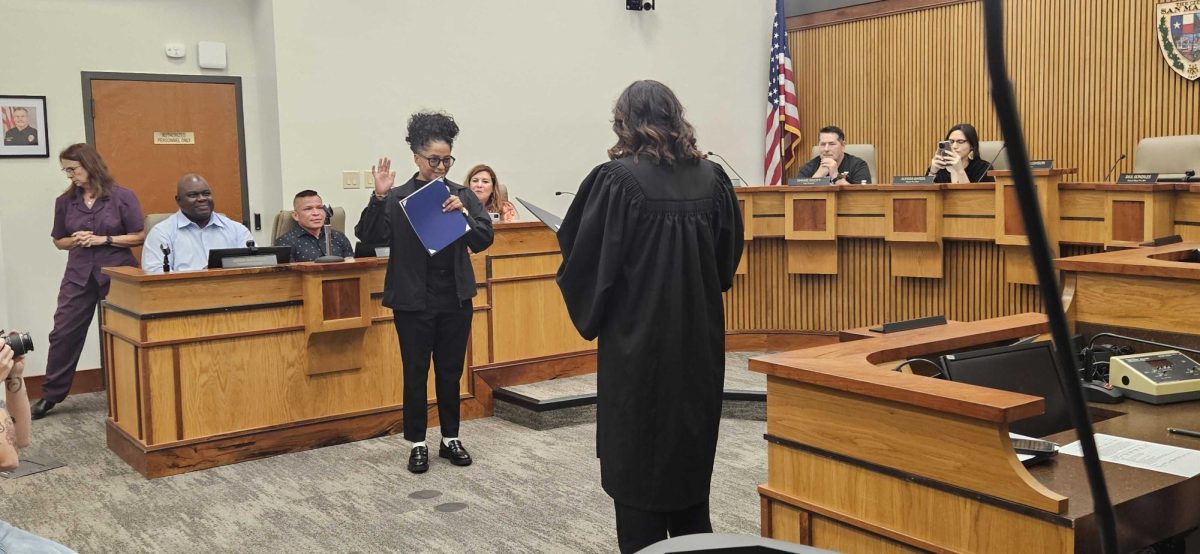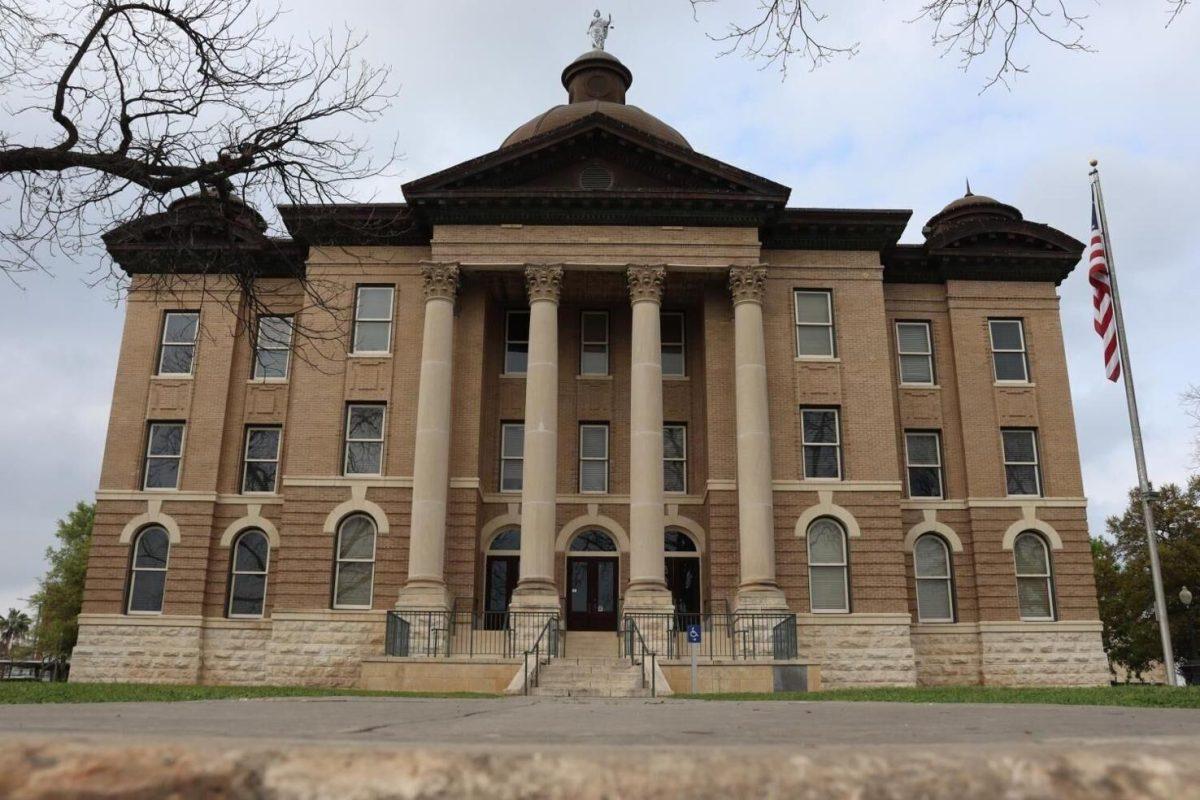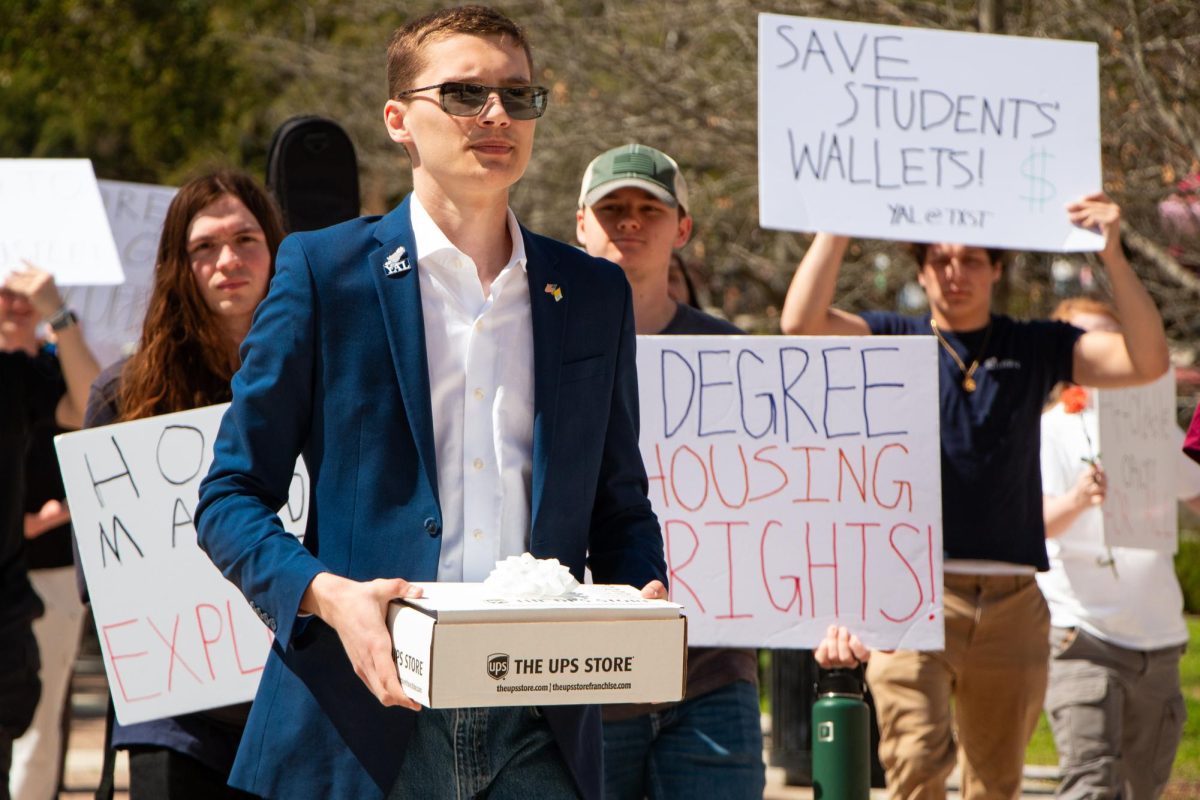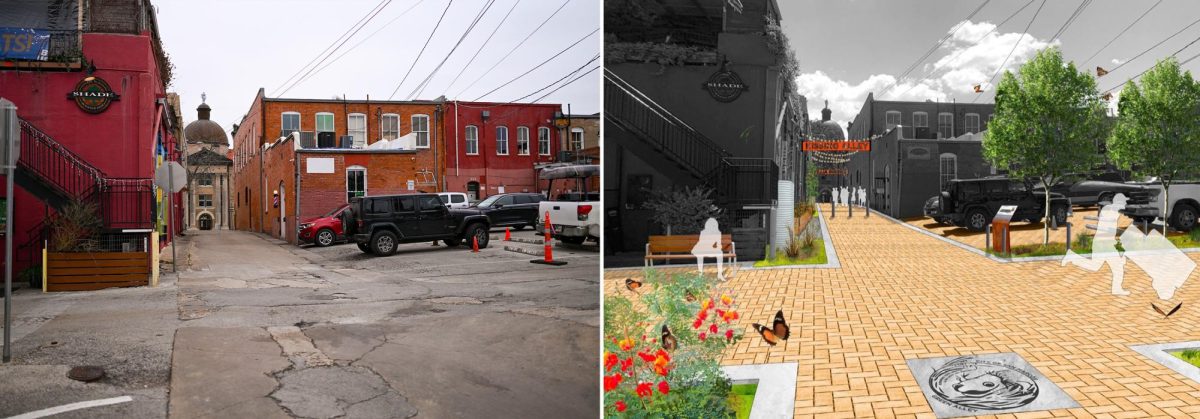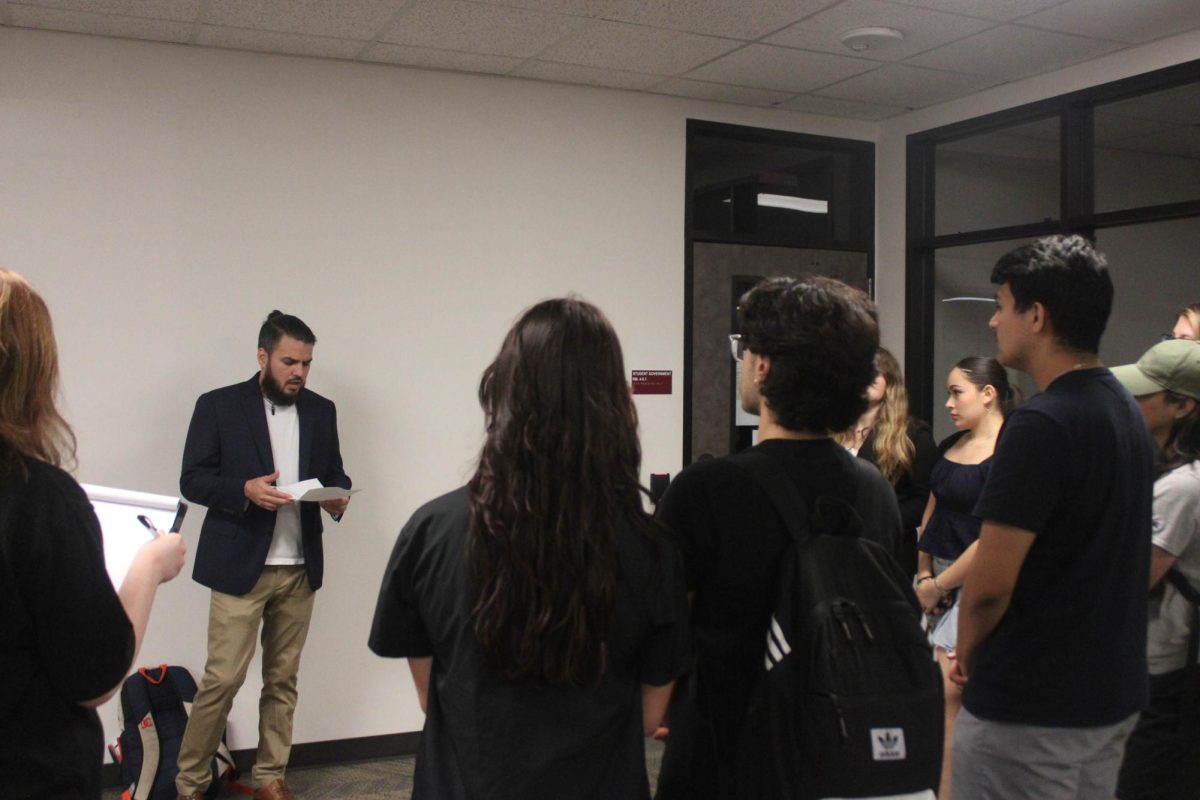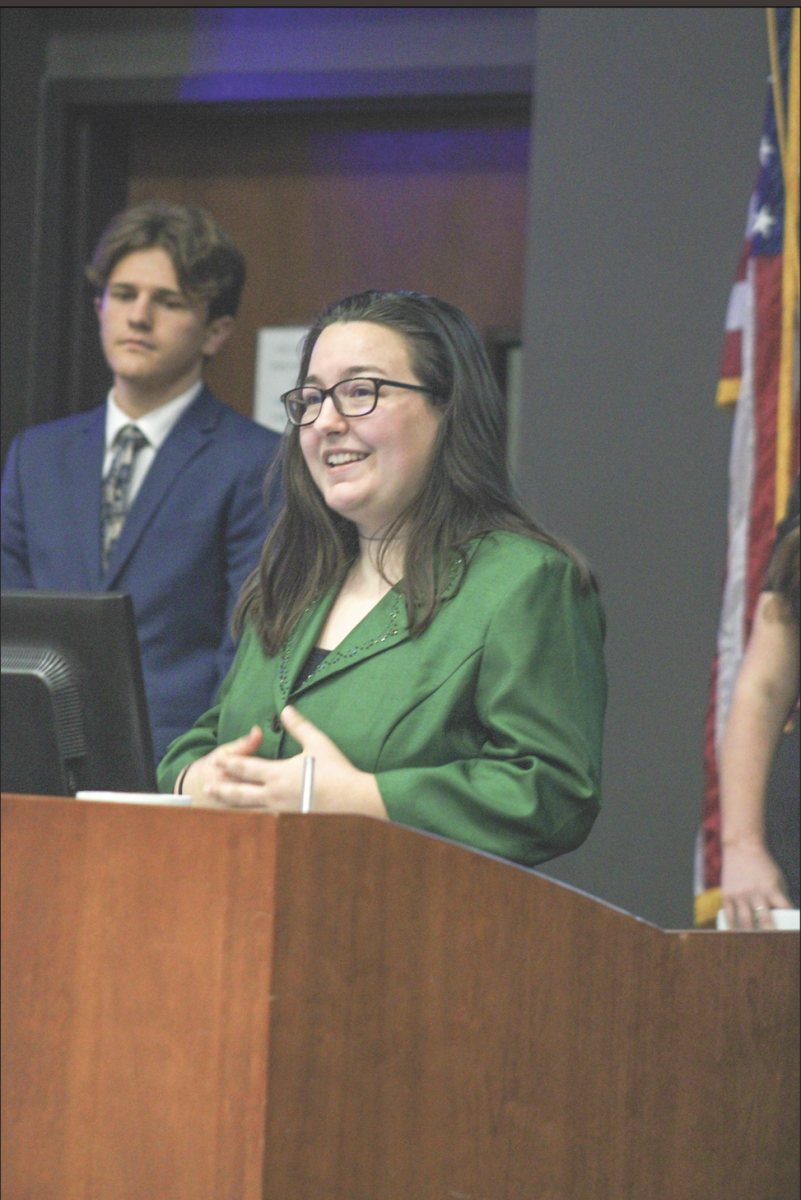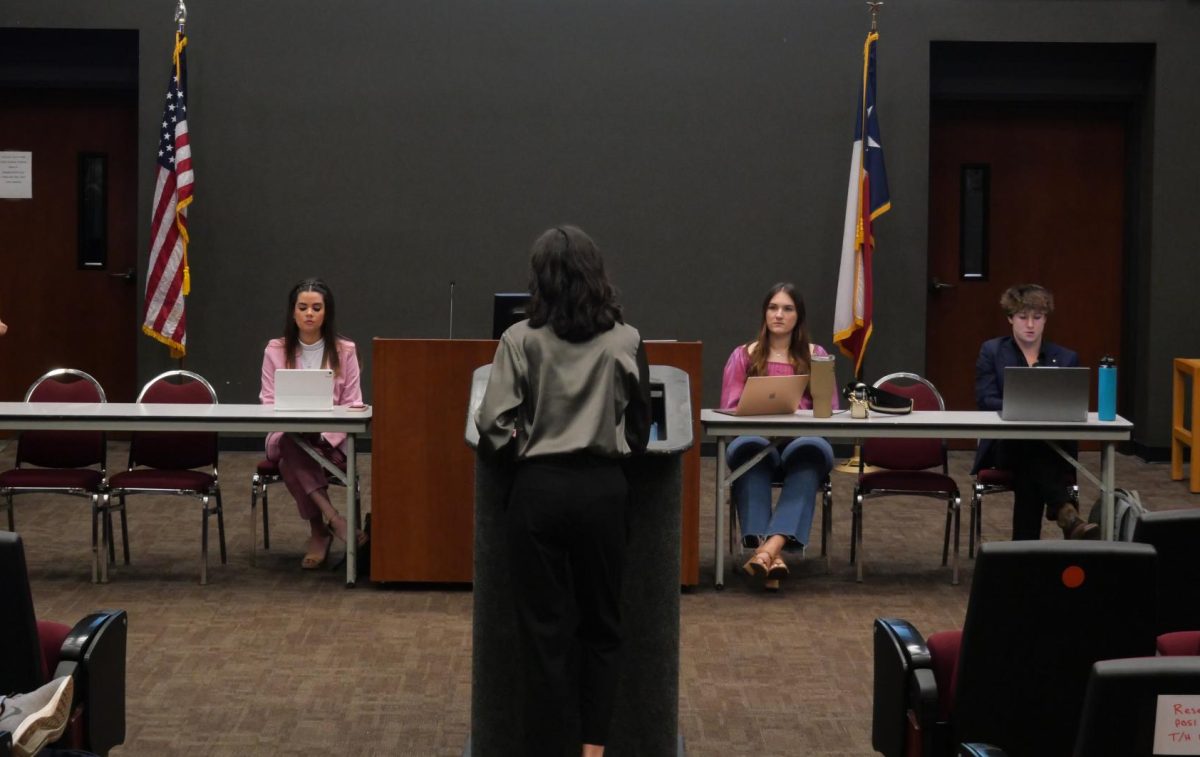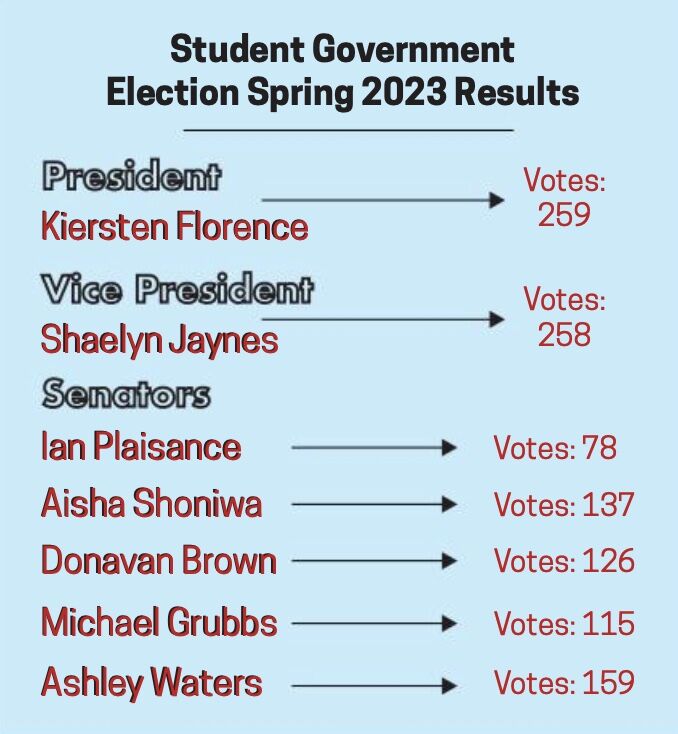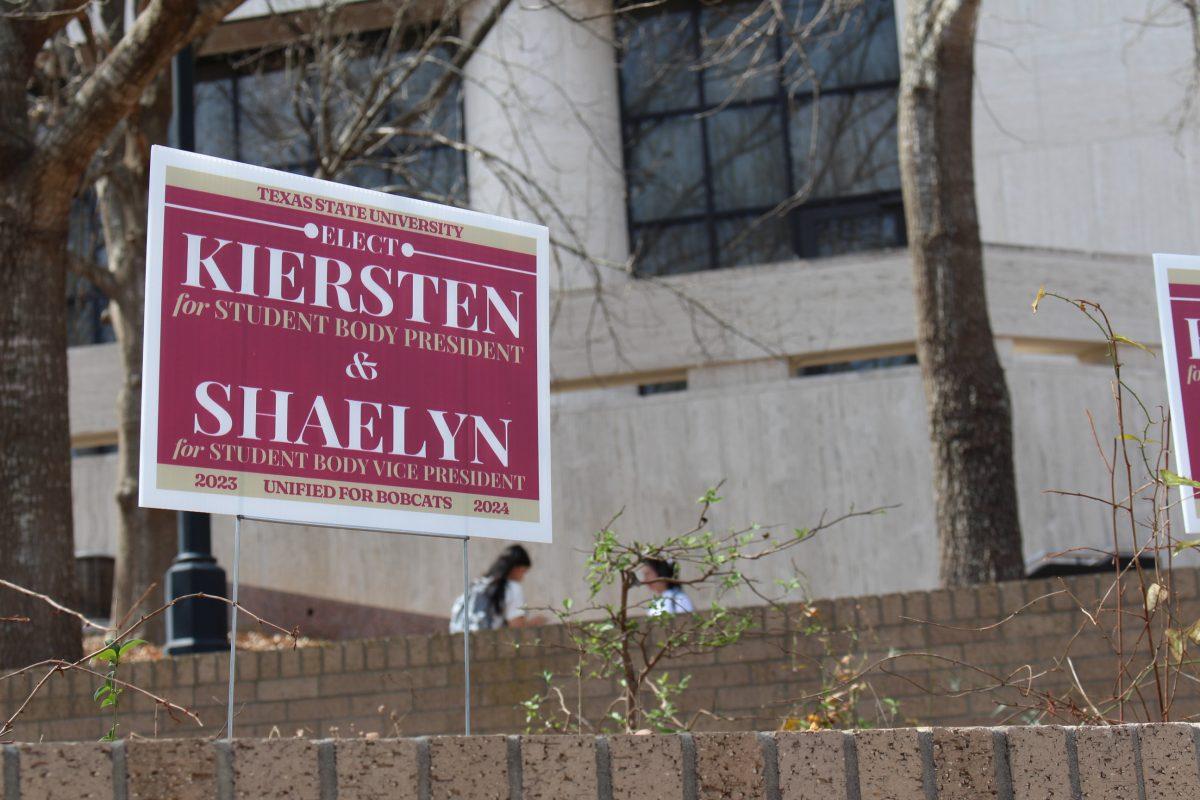The Student Government Senate heard public disagreements over the renaming of Flowers Hall and Beretta Hall and passed resolutions to celebrate Pride, in its Feb. 8 session.
The Senate also asked for an increase in police presence on campus and a Thanksgiving break extension.
Before resolutions were read and voted on, the floor opened for public speakers, two of whom spoke about the potential renaming of Flowers Hall and Berretta Hall.
Sallie Ward Beretta, a member of the United Daughters of the Confederacy, is the namesake of the Sallie Beretta Outstanding Senior Woman Award along with the residence hall. She is described as a “club woman and a civic leader” on the university’s website.
John Flowers was president of Texas State and openly opposed integration when denying admission to Dana Jean Smith, an 18-year-old Black woman, by citing a whites-only provision in the school charter. Smith’s father sued the university and prevailed, allowing her to become the first Black student to integrate into the school in 1963.
Evan Bookman, the president of both Texas State’s National Association for the Advancement of Colored People (NAACP) and Black President’s Council, denounced the legacy of the two individuals, as well as University President Denise Trauth’s Feb. 1 statement suggesting the school may change the names of the halls.
Bookman says the statement is not decisive enough, as the university already decided to rename the San Gabriel and Angelina dormitories, along with two streets on the Round Rock campus. Bookman adds he finds the timing of the statement “to be an insult,” as it was released on the first day of Black History Month and took no real action.
“I find it very troubling that Texas State has a residential hall and an award meant to go to [an] outstanding senior woman based on leadership, scholarship, character, potential and loyalty, named after such a person,” Bookman says. “Moreover, President John Flowers trying to prevent what was at the time called Southwest Texas State College from enrolling Black students, such as Dana Jean Smith, is nothing but white supremacy, racism and being on the wrong side of history.”
Hunter Schuler, a former Student Government senator, Student Supreme Court justice and a master’s candidate at Texas State, spoke against the proposal to rename Flowers and Beretta at length, citing his research on Beretta’s correspondence and personal documents.
Schuler says the United Daughters of the Confederacy “was something she was active in but not her single identity,” listing off the myriad of other organizations Beretta was part of.
Schuler says the philanthropic work of the United Daughters of the Confederacy, such as taking care of Confederate veterans and establishing scholarships, is often overlooked. He adds the organization’s efforts to support war bonds and the Red Cross during World War I and World War II were “pretty staggering”.
“These were, honestly, a bunch of rich, old ladies who didn’t have a whole lot else to do,” Schuler says. “This was not white hoods burning crosses the way that we might think of when we see movies like “O Brother, Where Art Thou?” This organization was something quite different.”
Schuler says the United Daughters of the Confederacy “were not secessionists hell-bent on white supremacy,” as there was “not a single mention of white supremacy or race anywhere in her documents.” Schuler adds the most controversial thing he thinks the organization did was assist in naming a highway after Jefferson Davis. He says the majority of its work consisted of plaques and “promoting themselves and other women.”
“This was not a lynch mob of violent white men,” Schuler says. “This was women with idle time on their hands.”
With regard to Flowers, Schuler says the women admitted they “had nothing negative to say about Mr. Flowers” and said Flowers “knew how we were doing academically, he knew people’s names and faces.”
After one more guest speaker, the Senate voted on several items of old business, the first a resolution to celebrate Pride with a march starting at the President’s House and leading to Stonewall Warehouse. The endpoint of the march was an amendment proposed by Sen. Patrick Moloney. The resolution passed unanimously, 24-0.
A resolution to call for an increased presence of University Police Department (UPD) resources on campus in response to an increase in reported crime passed 16-7. Parliamentarian Cody DeSalvo says he is concerned over the potential increase in officer presence on campus and says it may not lead to a decrease in crime but an increase in reported crime, attributing in part the spike in reported crime to better handling of said reports by UPD Chief Laurie Espinoza Clouse.
“We shouldn’t diminish it, but I think that we’re probably seeing a spike in reported cases because our chief of police takes reporting and giving us information about that very seriously,” DeSalvo says. “I don’t want to reject a resolution outright on this basis, but it feels to me that there might need to be a little bit more study from this body before we commit to a position of saying, ‘let’s have more police on campus.’”
Sen. Quieraney Belvin says her experience as a residential assistant gives her insight on UPD’s late-night patrols, and that lack of police presence is not the problem.
“Just as an African-American student [involved in different African-American organizations, I can personally say] that increasing [UPD] on campus is not going to be for the betterment of certain demographics on campus,” Belvin says. “I feel as though the patrolling is already there. I really feel as though, if anything, we just need more surveillance.”
The body voted 22-2 in favor of calling for a full week of Thanksgiving break; Sens. John Rogers and KeAirra Haynes voted against. Rogers says extending the break would compromise the schedules of non-traditional students. DeSalvo echoes the sentiment but with regards to Faculty Senate’s disapproval, as it would complicate the schedules of lesson plans.
A piece of legislation calling for signs to be posted by the university stating students have the right to remove their masks should they be outside and socially distancing was tabled until next week’s session as its author, Senate Leader Quintin Lorenz, wished to make more changes to the legislation.
Several resolutions were read aloud to be voted on during the next session: A resolution similar to one previously tabled indefinitely calling for support of personal pronouns; a call for the Silkies Run/Walk to be recognized as a university event; a call for Chartwells Dining Services to invite a Whataburger franchise to Texas State; a call to rename Beretta Hall and Flowers Hall; a resolution to better forgive first and second time parking offenses; and a call to create a mural for all students who have passed away.
The Senate voted on the confirmation of the following candidates to the positions of senators-at-large through 11 simple resolutions, as well as the nomination of Sen. Joseph Reed as chairperson of the Health & Safety Committee.
- Kyle Calnan
- Matthew Pfeiffer
- Trace Bishop
- Aiden Barrett
- James Herrin
- Patrick Siegenthaler
- Grayson Williams
- John Franklin
- Jared Smith
- Bruno Ladaniuski
- Spencer Lewis
Senator-at-Large Lewis previously resigned from the body in February 2019, comparing it to a cesspool and the Mueller investigation of former U.S. President Donald Trump. Lewis was fired from his position as campaign manager after a series of deleterious tweets aimed at the Benbow-Thompson campaign.
Lewis proceeded to tweet out a series of phone call snippets between him and then-presidential candidate Matthew Gonzales alleging the latter engaged in abuse of power, leading Gonzales and his vice-presidential candidate Alison Castillo to resign from the race.
All Student Government meetings and resolutions can be accessed by visiting the Student Government website.







